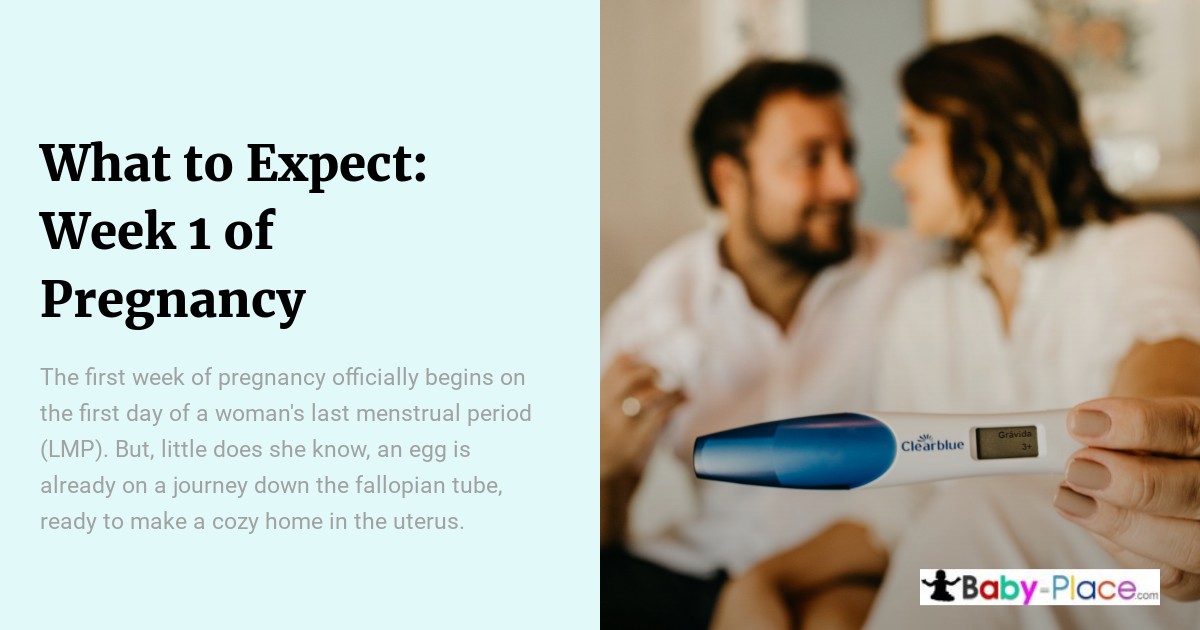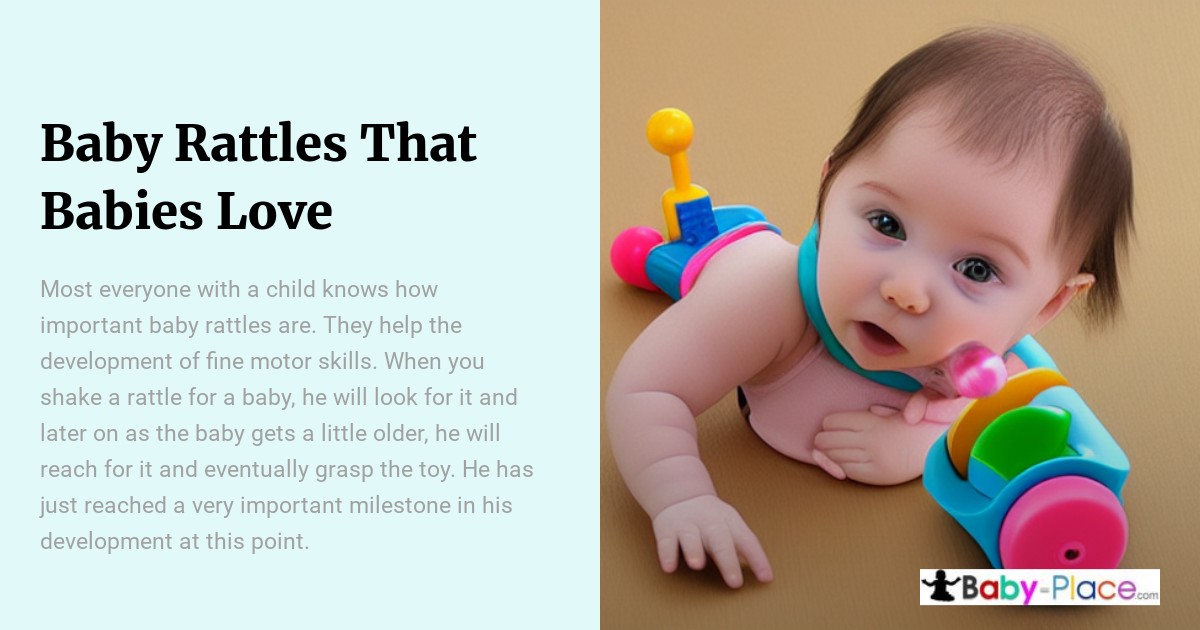Before having our 3rd child, we were at our family doctor about another issue, and I asked her if she had any tips for getting pregnant. She said:
Well, as you have two kids already, I can assume that you know the basics. The more tries you have, the more your chances are raised. Come back to see me in a year if you are still not pregnant
By the next month, we were pregnant. I’m not sure exactly what advice she would have given, but presumably similar to what you will read below.
Having a baby is one of the most rewarding experiences in life. It’s an intimate connection between two people that will last for years to come. But getting pregnant can be difficult, so it’s important to take all the steps necessary to ensure success and ensure your journey toward parenthood is as smooth as possible. In this article, we provide tips on how you can get successfully pregnant and start building your family together.
When trying to conceive, there are many things couples need to consider, such as timing intercourse correctly, undergoing fertility tests, and understanding the signs of ovulation. With all these factors taken into account, it’s easy to become overwhelmed by the process. That’s why we’ve compiled our top tips below – they’ll help guide you through the stages of conceiving a baby with ease!
From tracking your menstrual cycle accurately to knowing when to seek medical advice, each tip provides valuable insight into the world of conception and offers practical guidance along the way. So if you’re ready to embark on this exciting yet daunting journey, let us help you get prepared for pregnancy today!
Understanding Your Fertility
Knowing your cycle is the first step towards understanding your fertility, as it helps you understand when you’re most likely to get pregnant. It’s important to keep track of things like when your period starts and ends, how long each cycle is, and any changes in symptom patterns during different phases of your cycle.
Every woman is different, so having this knowledge can help you be best equipped for your personal body when trying to conceive a baby.
If you’re trying to get pregnant, tracking key indicators like your basal body temperature and cervical mucus can be invaluable tools in helping you identify when you are most fertile. It’s amazing how subtle changes in both can be indicative of fertility and the window of time where there is an increased chance of pregnancy. With a little knowledge and observation, it’s possible to maximize your chances of conceiving.
Again, it’s important to remember that fertility can decrease as you get older, so it may be beneficial to start trying for a baby sooner rather than later. Being mindful of this can help ensure you are more likely to achieve success in your goal of having a family.
Making Lifestyle Changes to Increase Your Chances of Getting Pregnant
Eating a balanced, healthy diet is one of the keys to fertility.
Eating nourishing foods and taking prenatal vitamins can boost your chances of getting pregnant. Eating nutritious meals with plenty of fruits, vegetables, and lean proteins provides your body with the essential nutrients needed for reproduction.
A robust prenatal vitamin may help increase your chances of conceiving by providing your body with additional beneficial vitamins and minerals not found in regular everyday foods.
So if you’re trying to get pregnant, consider taking a prenatal vitamin and include a wide variety of nutrient-rich foods for the best chance at conception success!
Regular exercise is key in preparing your body for conception and pregnancy. Research shows that it can increase fertility, allow easier labor and delivery, boost energy levels and improve overall health for prospective parents! Make sure to schedule regular physical activity each week – whether running, swimming, or even just a leisurely walk – to set you up for the best chance of conceiving a baby.
Only read if you want to stop doing the fun things in life:
Furthermore, avoid smoking, alcohol, and caffeine since these can hurt fertility and the unborn baby’s health. Eating healthily, reducing stress levels, and getting adequate exercise are simple habits that can make a big difference in providing a healthy start for your baby.

If you don’t, then do the opposite!
Preparing for Baby’s Arrival
If you’re pregnant and about to have a baby, there are a few important things to consider in preparation for your bundle of joy. First and foremost, you’ll need to create the perfect nursery for your little one by getting all the furniture set up and decorating it. It’s also a good idea to make sure you have enough diapers, baby clothes, bottles, and other necessities on hand before they arrive. Being prepared will help ensure that when the time comes, everything is ready for your baby!
Understanding The Impact Of Medical Conditions On Fertility
Being aware of any underlying health issues can be life-changing for those trying to conceive – so let’s take a look at what you should know!
Firstly, there are many medical conditions that have an effect on fertility. For instance, endometriosis is a common condition among women that affects the lining of the uterus, sometimes leading to infertility. Similarly, polycystic ovary syndrome (PCOS) is another hormonal disorder impacting fertility. It’s important to understand these illnesses if they apply to your situation, as they may require specialized treatment or medication to improve the chances of conception.
In addition, lifestyle habits such as diet and exercise also play an essential role in reproductive health. Eating nutritious foods and exercising regularly can help regulate hormones and prepare your body for pregnancy. Also, bad habits like smoking and excessive drinking can affect sperm count or egg quality, so it’s best to avoid them completely when attempting to get pregnant.
All in all, learning about medical conditions related to fertility will provide valuable insight into potential treatments available. Developing healthy lifestyle practices will also increase the likelihood of successful conception – giving hopeful parents every chance possible!
Exploring Assisted Reproductive Technologies (Art)
ART is a journey that couples looking to start a family should take, as it can provide invaluable insight into their chances and options for getting pregnant. What’s more, ART offers hope and solutions when other pathways have been exhausted or are not available.
The world of ART has grown exponentially in recent years, providing various treatments and therapies that help couples experience the joys of parenthood despite their circumstances. Here are four areas where ART plays an essential role:
- In Vitro Fertilization (IVF): This involves removing eggs from a woman’s ovaries, fertilizing them with sperm outside her body in a laboratory setting, then implanting them back inside her uterus.
- Intrauterine Insemination (IUI): Also known as artificial insemination, IUI requires inserting washed sperm directly into the cervix or uterus at the time of ovulation.
- Donor egg/embryo transfer: Couples who cannot conceive with their own gametes may opt to use donor eggs or embryos instead.
- Gestational surrogacy: Surrogacy is another option for those unable to carry pregnancies themselves due to health reasons or same-sex partnerships.
These technologies are revolutionizing how infertility is being addressed today and helping many hopeful parents achieve their dreams of having children — something they might otherwise never be able to do without them. Whether you choose IVF, IUI, donor embryo transfer, or gestational surrogacy, each method provides its own set of challenges and rewards along the way. But no matter what path you take towards building your family, one thing remains certain—ART will always play a crucial part in any successful pregnancy story!
The Role Of Timing And Positioning In Conception
The joyful and mysterious process of conception is a delicate dance that requires careful timing and positioning to be successful. Like a game of musical chairs, the right partner must enter at just the right moment in order for new life to begin. It’s an intricate waltz between two people who are equally important participants in this sacred act.
When it comes to getting pregnant naturally, timing is everything; understanding your cycle and when ovulation occurs can make all the difference between success and failure. Knowing when you’re most fertile will increase your chances of conceiving each month. Additionally, sexual positions matter too – certain ones may help sperm travel more efficiently toward the egg to achieve fertilization.
To give yourself the best chance of becoming pregnant quickly, try tracking your menstrual cycles carefully or using apps like Glow or Clue, which provide helpful insights about hormonal changes throughout your cycle. Monitor your body temperature every day as well—a slight spike could indicate ovulation has occurred.
And experiment with different sex positions during the days leading up to ovulation – those closer to entry such as rear-entry position (doggy style) may be more effective than others.
TIP: Make sure that you have plenty of skin contact while having intercourse —not only does it make it more enjoyable but also helps ensure that enough sperm reaches its destination!
Managing Stress And Emotional Wellness For Fertility
Having a baby is like embarking on an exciting journey—it’s full of joy, happiness, and anticipation but can also be filled with stress. It’s important to remember that managing your stress levels when trying for a baby is key to achieving successful conception.
We all know we need more rest, fewer drinks, healthy eating habits, and regular exercise when aiming to get pregnant. But how often do we think about the effect our emotional well-being has? The truth is that it plays a huge role in helping us conceive successfully.
The first step towards improving fertility through emotional wellness is learning to recognize signs of stress in yourself. Doing so will help you address any underlying issues before they cause further problems. Additionally, implementing relaxation techniques such as yoga or meditation can aid in reducing anxiety and creating a sense of peace within yourself which helps make the perfect environment for conceiving.
By understanding our own emotions better and taking steps to maintain good mental health, we are far more likely to improve our chances of getting pregnant and enjoying this incredible life-changing experience!
The Benefits Of Fertility Testing And Evaluation
Undoubtedly, fertility testing and evaluation can be incredibly beneficial for couples struggling to conceive. As such, it is essential that individuals understand the advantages of early assessment and the positive results it could have on their journey toward parenthood. To emphasize this point, let’s consider the following three points:
Firstly, understanding your reproductive health through fertility tests can provide you with a deeper insight into any underlying issues that may be preventing conception from occurring. By doing so, couples are able to take immediate action if they discover they are dealing with infertility as opposed to waiting until later down the line when treatments become more complex or expensive.
Secondly, depending on which test or tests you decide to undergo, a greater level of confidence in one’s overall fertility status can also be achieved. For instance, routine screenings such as semen analysis allow men to gain an accurate picture of sperm count, and motility whilst women receive feedback regarding egg quality or ovulation problems.
Knowing these facts enables couples to make better-informed decisions about how best to move forward with their plans for pregnancy.
Finally, undergoing fertility testing provides peace of mind and reassurance that no stone has been left unturned in efforts for trying to conceive naturally before taking further steps within assisted reproductive technology (ART). Utilizing ART methods isn’t always necessary but having access to all available options ensures couples don’t miss out on potential opportunities for success either – without needing remorse afterward!
Fertility testing and evaluation should not only be seen as a means of diagnosis but rather as something empowering which allows partners to focus positively towards achieving their goal – building a family!
Utilizing Fertility Medications And Treatments
As you start your journey to get successfully pregnant, the idea of utilizing fertility medications and treatments can seem daunting. But with a little knowledge and preparation, it doesn’t have to be!
Imagine yourself as an explorer in search of new horizons – imagine taking control of your own fertility by understanding what options are available.
Fertility medication consists of hormones that help stimulate ovulation or regulate menstrual cycles. It could involve taking drugs such as Clomid, Gonal-f or Bravelle to help encourage egg production. Treatments may also include intrauterine insemination (IUI), which involves depositing sperm directly into the uterus at the time of ovulation, or in vitro fertilization (IVF), where eggs are taken out from the woman’s body so they can be combined with sperm outside before being placed back inside her body.
It is important that you understand how these treatments work and discuss them thoroughly with your doctor if you decide to go down this path. Your physician should provide clear instructions on when to take any medications prescribed and how long each cycle will last; they should also explain the potential risks associated with each treatment option so you can make an informed decision about whether it is right for you.
Ultimately, fertility medications and treatments can give couples more control over their chances of having a baby – but only after careful consideration, consultation, and planning.
The Role Of Partner Involvement And Communication
When you increase your chances of getting pregnant, you may feel like the only thing that matters is medication and treatments. But involving a partner in the process can be just as important! Communication between both partners plays an essential role in successful pregnancy outcomes.
It’s understandable why some people might not think communication is necessary when trying to conceive — after all, isn’t this something that should happen naturally?
However, research shows that discussing fertility goals and issues with one another can help couples stay on track and make decisions together. Additionally, discussing any concerns or questions regarding fertility options can create a stronger bond between partners, allowing them to support each other emotionally throughout their journey.
Fertility medications and treatments are helpful tools for achieving pregnancy, but they can also cause stress and confusion if expectations aren’t managed properly. Understanding each other’s thoughts on potential roadblocks allows partners to work through any challenges that arise together – creating a team mentality that makes success much more achievable. So next time you’re looking for ways to get pregnant successfully, don’t forget the power of partner involvement and communication!
Strategies For Navigating Infertility
Navigating infertility can be a difficult and emotionally draining process. It requires understanding, patience, and resilience to successfully make it through this journey. There are certain strategies that can help couples navigate the complexities of infertility in order to achieve their desired outcome: parenthood.
The first step is for partners to open up about their feelings surrounding infertility so they can better support each other during this time. Partners should discuss any fears or anxieties they may have related to the process as well as how best to communicate with one another throughout the entire journey. This will ensure both parties feel heard and understood while navigating this challenging experience together.
In addition, seeking professional assistance from a fertility specialist is important when dealing with infertility issues. A doctor can provide information on potential treatments and offer guidance every step of the way, helping couples understand what could work best for them, depending on their specific situation. They may also recommend lifestyle changes that could improve the chances of conception, such as improved nutrition or exercise habits.
TIP: Find an experienced fertility specialist you trust who not only understands your medical needs but also respects your emotional well-being.
Coping With Emotions And Moving Forward
One of the most difficult parts of infertility is the emotional roller-coaster that comes with it. The highs and lows can overwhelm even the strongest couples, leaving them feeling exhausted and uncertain about what to do next. It’s a painful process that requires understanding, patience, and strength from both partners involved.
But there is hope in this darkness: coping with emotions and moving forward. This isn’t easy, but it’s possible for those who are willing to put in the work. Taking time to talk through tough topics like hopes and fears can be incredibly helpful – especially if you have someone experienced to guide you along your journey. Don’t forget, too, that self-care is essential during this time; taking breaks when needed, getting enough sleep, eating healthy foods etc., all help create a strong foundation on which to build an effective strategy for navigating infertility.
Rather than being stuck in fear or misery over not being able to conceive naturally right away, focus on finding ways to keep going forward despite any physical or mental setbacks you may encounter along the way. Keeping up communication between you and your partner, as well as an open dialogue with medical professionals, will also help ensure that everyone’s needs are met throughout this challenging experience.
TIP: Finding support groups online or locally can be beneficial; talking with people who understand exactly what you’re going through can provide much-needed comfort and encouragement during a difficult time like this.
Understanding The Psychological Impact Of Infertility
Infertility often leads to overwhelming emotions such as grief, confusion, and anger. Couples may feel helpless in the face of their inability to conceive. This can lead them to blame themselves or one another for their situation, even though there is usually no one person responsible. Couples facing fertility issues must be able to talk openly about how they feel so that any negative thoughts don’t fester and cause further emotional damage.
It’s also beneficial for those struggling with infertility to seek resources from professionals specializing in treating reproductive disorders. Such experts can provide helpful advice on managing stress levels while trying to get pregnant and offer emotional support through individual counseling sessions or group therapy settings. Additionally, getting involved with support groups for people going through similar struggles can help partners connect with others who have experienced the same thing and understand each other better.
No matter where you are in your journey toward parenthood, understanding the psychological implications of infertility is key when attempting to move forward productively and positively. Finding ways to cope effectively will enable couples to work together and ultimately make informed decisions regarding their future family planning goals.
Preparing For Pregnancy: Pre-Conception Care
Sowing the seeds of conception requires preparation. Like planting a garden, pre-conception care sets up couples for the best chance at success – if one doesn’t want to be left grasping at straws in the fertility wilderness. Assembling the necessary tools and resources before embarking on this journey is essential to get it right the first time around.
Think of it like laying down tracks, an investment that pays dividends by eliminating guesswork and providing clarity. Pre-conception care ensures your arrival at the parenthood station as quickly as possible with minimum disruption.
From taking folic acid supplements to reducing alcohol consumption, there are many simple steps aspiring parents can take to give themselves the best shot at conceiving successfully. It’s all about doing what you can to create a hospitable environment where your little miracle will call their home until birth day arrives, glowing with joy and anticipation!
The Role Of Fertility Specialists And Reproductive Endocrinologists
It’s ironic that in spite of our greatest efforts, many hopeful parents-to-be find it difficult to conceive. But with the help of fertility specialists and reproductive endocrinologists, those dreams may yet become a reality:
- These experts can provide medical advice on how to increase your chances of getting pregnant.
- They can offer guidance on preconception care and lifestyle changes that could improve your own health as well as the health of any future baby you might have.
- Fertility specialists and reproductive endocrinologists can also evaluate whether there are underlying issues contributing to infertility before recommending treatments or procedures such as IVF (in vitro fertilization).
- Additionally, they can provide counseling for couples struggling with emotional challenges associated with fertility problems.
So if you’re having difficulty starting a family, don’t be afraid to reach out for professional assistance – these individuals specialize in helping couples just like you achieve their dream of becoming parents. With the right support and guidance from a qualified medical team, anything is possible!
Practical Tips For Maximizing Chances Of Conceiving
Did you know that one in three couples struggle to conceive a baby? It’s heartbreaking, but it doesn’t have to be this way. There are practical tips for maximizing chances of conceiving, and these can make all the difference.
Fertility specialists and reproductive endocrinologists provide invaluable support with conception—but so can lifestyle changes. Here are five key areas where simple tweaks can greatly increase your odds of getting pregnant:
- Diet: Eating healthy foods like fruits, vegetables, whole grains, lean protein, and healthy fats will ensure you get essential vitamins and minerals needed for fertility.
- Exercise: Regular physical activity helps keep hormones in balance and also boosts circulation, which is important when trying to conceive.
- Stress management: Reducing stress through yoga or mindfulness practices could help improve hormone levels related to ovulation and boost overall mental wellbeing.
- Lifestyle choices: Avoid smoking, drinking alcohol, and using drugs as they may impede positive outcomes from any treatments used to aid pregnancy.
- Timing intercourse: Have sex around the time of ovulation since sperm remains alive inside the female body for up to 5 days after ejaculation.
Following these steps won’t guarantee success — but they can certainly give you an advantage over those who don’t take similar precautions! Making such small changes might not seem significant on their own. However, taken together they offer a powerful opportunity to create optimum conditions for successful conception.
Stress Management Techniques For A Healthy Pregnancy
Are you feeling overwhelmed with stress while trying to get pregnant? Stress can affect your chances of conceiving and, if successful, your pregnancy itself. So how do you manage stress when it comes to getting pregnant? Here are some techniques that can help.
First, take a step back from the situation.
Remember: It’s ok not to be able to control everything. Instead of spinning in circles worrying about what might happen, try taking things one day at a time. Find activities that relax you – like going for a walk or reading a book – and make sure to have them as part of your daily routine.
Next, practice mindfulness and meditation regularly. Focusing on breathing exercises is an excellent way to center yourself in moments of high anxiety or panic. If possible, attend guided sessions where professionals can show you proper techniques and methods; this gives you additional accountability and structure, which can also help reduce stress levels further.
Additionally, yoga has been found to both increase fertility potential and alleviate feelings of worry, so it may be worth incorporating into your schedule too!
When all else fails, reach out for support from family and friends who understand what you’re going through. Sharing stories with people who’ve experienced similar situations can give much-needed perspective on any difficult emotions that arise during the process of trying to conceive – plus venting helps release endorphins which naturally lighten moods!
Talking openly about fears or frustrations related to conception is perfectly normal; don’t feel ashamed for needing extra emotional support sometimes, either.
No matter the obstacles ahead, remember that there are plenty of resources available online and offline that offer guidance throughout your journey toward parenthood – seek them out whenever necessary!
Nutritional Advice For A Healthy Fertility Journey
It’s no secret that nutrition plays a key role in our overall fertility health. In fact, some experts believe it can be even more important than stress management techniques! To discover the truth of this theory, let’s look at how eating right can help you on your journey to becoming pregnant.
To start off, here are three essential tips for optimizing your chances:
- Increase intake of foods rich in omega-3 fatty acids, such as salmon and walnuts;
- Eat plenty of fruits and vegetables – especially dark leafy greens like kale and spinach;
- Avoid processed food or anything with added sugar.
By following these simple nutritional guidelines, you’ll not only increase your chances of getting pregnant but also enjoy better overall health during pregnancy. Eating nutrient-dense meals full of fresh ingredients will provide you with valuable vitamins and minerals, which is essential for proper fetal development. Additionally, supplementing with prenatal vitamins can ensure that all your needs are met while avoiding any deficiencies that may lead to complications down the line.
So if you’re trying to conceive, don’t forget the importance of good nutrition! Investing in a healthy diet now could have lifelong benefits for both mother and baby. With just a few small changes to what ends up on your plate each day, you can put yourself one step closer to achieving a successful pregnancy.
Conclusion
In conclusion, the journey to successful pregnancy can be overwhelming and difficult at times.
However, with proper knowledge of medical conditions that could affect fertility, an understanding of assisted reproductive technologies (ART), mindful timing and positioning for conception, stress management techniques as well as nutritional advice, it is certainly possible to maximize the chances of conceiving.
It is also beneficial to consult a specialist or reproductive endocrinologist in order to have access to specific information tailored toward one’s individual fertility needs. Ultimately, taking each step on this journey with patience and persistence may lead you to the reward of a healthy pregnancy.
As they say: “patience is a virtue,” – so take your time and keep going!
And obviously…enjoy making your wish coming true!

















